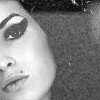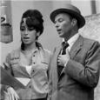From Salon.com ...
Winehouse? The director of a heartbreaking new documentary on the rise and fall of a “digital girl”
Director Asif Kapadia on “Amy,” his extraordinary portrait of a musical genius destroyed by a new kind of fame
If it sounds overly dramatic to suggest that Amy Winehouse died for our sins, that’s not too far from the emotional impact delivered by Asif Kapadia’s rich and surprising documentary “Amy,” made with unlimited access to Winehouse’s musical catalog and to most of her friends and family members. It’s a classic star-is-born fable of triumph and tragedy that happens to all be true, a story about a talented and vulnerable girl from the suburbs who remade herself over and over again, and who could not escape a destiny that almost seemed written in the stars – but left everyone who knew her lamenting how easily it could have been avoided.
Kapadia is a London-born filmmaker who approached Winehouse’s life, as he did that of Brazilian racing legend Ayrton Senna in his thrilling 2011 “Senna,” as a dramatic story with numerous twists and turns and a magnificent and tragic figure at its center. In both cases he’s dealing with someone who was recognized for their unusual gifts in childhood, who left behind a remarkable trail of evidence. In what is already the most famous clip from “Amy,” we see the 14-year-old Winehouse, an acne-ridden Jewish girl from the London suburbs, singing “Happy Birthday” in a spot-on impersonation of Marilyn Monroe. That doesn’t merely demonstrate Winehouse’s chameleonic skills, which would be at least as much a blessing as a curse in her musical career, but also the depth of her musical knowledge and her understanding of 20th-century iconography.
I had a mild but interesting disagreement with Kapadia during our recent conversation in New York, when he said he never had the feeling that Winehouse was trying to sound American. To me, her singing voice is clearly channeling the invented persona of a mid-century R&B or jazz singer, probably African-American, but the more you think about it the more ambiguous that gets. Another construction might be that Winehouse was crafting a latter-day female version of Mick Jagger, a London suburbanite from an earlier era who was nurtured on a mish-mash of records made in Chicago and Harlem and Detroit and the Deep South.
“Amy” is built from loads of archival footage and dozens of interviews, almost too many, that add up to an immensely nuanced portrait well beyond “doomed rock ’n’ roll junkie.” For one thing, alcohol had much more to do with Winehouse’s death than heroin did. Far more important, Kapadia tries to recover Winehouse as an extraordinary musical talent – very nearly a prodigy – and a natural songwriter, who was not well suited to the content mill of 21st-century pop music. As I discussed with Kapadia, she was even less prepared for the sudden transformation of 21st-century media, which hit peak velocity at virtually the same moment that she ascended to stardom. Did the Internet kill Amy Winehouse? That’s probably going too far, but it sure didn’t help her.
Nobody forced her to become a celebrity or a pop star (which of us would resist those things, if they were offered?), but in retrospect it seems clear that a different kind of career, one not really available these days, might have kept her going a lot longer. When you see Winehouse recording “Body and Soul” with Tony Bennett, and hear Bennett talk about the quality of musicianship he saw in her – and add that she simply didn’t live long enough to learn how to live – I mean, my God, it’s devastating.
I’m sure Winehouse fans knew this already, but the “daddy” referred to in her hit song “Rehab” really was her father, former London cabbie Mitchell Winehouse, who didn’t feel it necessary for her to seek treatment instead of fulfilling her contractual obligations. Although he initially went along with Kapadia, Mitch isn’t too happy about the finished results of “Amy,” and it’s no wonder. He and Amy’s mother, who separated when Amy was young, come off not quite as abusive or evil but as precisely the wrong kind of small-minded and disengaged parents for a startlingly talented and exceedingly impressionable girl who wasn’t always likely to make the best decisions on her own. I wanted to climb into the movie and punch Mitch on several occasions during “Amy,” and then I just felt like crying for him, on the most basic and human level, because he had an amazing daughter and she died and he still doesn’t understand why.
You don’t seem to be searching for a “teachable moment” in this film, even though there are unquestionably moral lessons to be found in the story of Amy Winehouse, as there were with Ayrton Senna. You evidently want to leave that to the viewer, which a lot of documentaries don’t do.
My background is in drama, so I’m coming at it as a film director. I direct everything and anything, but my thing is not to force to anything on you. With “Senna,” it was the first time where I felt like, look, I could easily put some interviews into this film, and people would go, “There’s the director,” but I didn’t think that would make the film better. I think it’s more interesting to forget that it’s a documentary. It’s not a documentary; it’s a movie. I want it to feel like you’re watching any other film, and it needs to compare to a movie you would see on the big screen. That’s the other thing — it’s for the big screen. For me, cutting in there and trying to make a point makes it TV.
We’ve been lucky with making these films in that we’re pretty much in creative control. Therefore, I’m not having to over-explain. We’re not having test screenings where people are going, “I don’t understand!” and then you have to explain it, have a voiceover with someone telling you what’s happening. There wasn’t a script here. We just went and talked to some people.
I literally had no idea what this film was going to be, but we had made enough films to know that between us, we know what we’re doing. We’ll deliver a movie! Just leave us alone, and let’s get on with it. It’s very freeing, and I suppose in that way, you’re more likely to get a vision from a director, weirdly enough, without the director ramming it down your throat. Because I do think there is a message in there.
Even if I’d like to claim some degree of distance or intellectual independence from the subject of this film, as a member of the entertainment media, I have to say: Man oh man, that’s not a good story about our business, is it?
No, it’s not. It’s the music business, it’s the entertainment business, it’s the audience who share the videos, who click on it. The most popular newspapers, the most popular websites, are the ones that have the most gossip, that make fun of the most people — and the people that are being made fun of read them, because they want to be in them, because then you know you’ve made it! It’s all a bit weird!
Yeah. In your lifetime and mine, the Daily Mail went from a second-rate London tabloid to a global brand that dominates entertainment coverage.
Yes. But we’re kind of starting at the ending. Amy happened to be the artist, who happened to have that life experience, that she happened to put into a record, that happened to break big at the moment where it all went digital. So this film also has a reading of analog to digital.
Her story began with Nick [Shymansky, Winehouse’s first manager] hearing that she had this great voice, and asking her to put something down, and she said, “No, not interested, not bothered.” He spent hours talking to her, and she said, “I don’t care,” because she wasn’t interested. And then he receives a package in the post, a jiffy envelope with a cassette tape, and the envelope is covered in stars, covered in her name, covered in kisses. This is the girl who said she didn’t care, and then spent two hours on the envelope. She really cared. And then he plays the audiotape in his car while he’s driving somewhere, and hears the voice.
She comes from that background, but by the ending she’s the digital girl, which means everyone in the world sees her concert in Serbia [when Winehouse came on stage apparently inebriated and confused, and refused to sing]. Everyone clicked on the link and heard about it. By the end, she’s the one people are talking about on Facebook, she’s the one they’re arguing about on Twitter.
In a way, including all those song lyrics [as on-screen graphics] is my attempt to go back to vinyl, when, if I liked a record, I would read the lyrics! It would be printed in the sheet, and then I would read about who did percussion, who did the keyboards, where was it recorded, and who did they reference, who did they thank. That whole geeky thing of records that you liked, which then got difficult when you looked at a CD, and now there’s nothing! I know nothing about the songs I download. If I’m lucky I get the cover. It’s really interesting, it used to be so obvious: If I loved the record, I knew everything about it, and I knew what they were saying. Now we’ve gotten used to just dancing to the music, tapping your foot to the music. “I like this song!” No one had a clue what Amy was talking about. And it was all there in front of us.
That’s true. And one thing you do here, very clearly, is reconnect to the idea of Amy Winehouse as a songwriter and a musician. Not just a singer and a celebrity, a famous person who looks like crap in paparazzi shots.
Yeah, that’s true. It’s all live, all the music in the film. I’m more interested in live. Everything you hear is what is experienced when she picks up a guitar and sings about it. She doesn’t need anything else. I didn’t want anything else. I didn’t need lots of overlaying – it’s just her and a guitar, or just her singing and feeling. I never thought about this before, but she’s the first time I’ve become aware of a method-singer. A method-actor has got to feel a certain way to perform and be a certain character. For her to sing about something, she has to feel that emotion to sing about it, which is why she found it so hard to sing that song. She can’t just knock it out, she can’t just phone it in. She’s got to feel it. And with a lot of her songs, the guy that she’s singing about, who left her for someone else, he’s standing there, just offstage, and she’s singing the song about him. That’s hurting her, every time she sings it.
I was thinking about the way that she, like so many other British singers going way back in pop history, plays with American idioms and American accents. Is that partly about the traditional British reticence to display emotion?
Do you hear American in her voice? One of the things I like about her is that she’s not trying to be American, I think she’s being … well, she’s interesting.
Well, she’s not trying to sound like a contemporary American, that much is for sure. But come on, she is channeling a certain idea of American, of mid-century African-American jazz or R&B.
The American accent, we just grow up with it. It’s everywhere, it sounds cool, it’s just how music should sound. But what I always liked about her, for me, as a Londoner, is that she’s a Londoner. A lot of people try to do hip-hop and try to be American-sounding and it sounds silly. And what I like about her is that it’s very down-to-earth London, the lyrics. She’s covering American singers, but when I hear her version of Donny Hathaway’s song, she’s an English voice singing Donny Hathaway.
There is something there, though, which I see, there is always a persona that she created. She knows her references when she does them. She’s so clever. If she does something and you feel it, it’s not by accident, it’s that she wants you to get that. When she does Marilyn Monroe singing “Happy Birthday” – as a 14-year-old kid! – she knows what she’s doing. She knows her history. She’s one of those kids that’s read everything and knows everything. If you feel that, I cannot say it’s not there. I just might not have been clever enough to pick up the reference, because I’m hearing something else, because there’s so many things going on.
I don’t disagree that she is English, and a Londoner, in a very specific way. I remember hearing a conversation on the BBC, years ago, between Roger Daltrey and Tom Jones, about the history of the “English girl singer.” Amy cannot be reduced to that, but she’s channeling that too.
Sure, yeah. Dusty Springfield. You know, as a Londoner, I hear and see something in her, and in Blake [Fielder, Winehouse’s longtime beau and former husband] as well: They’re from the suburbs. I’m from an edgy part of London, that now has become a bit chi-chi. I was born there and grew up there. Amy’s not really from Camden. She moved there. People move there because they want to become part of the scene. People from outside London go there and try a bit too hard, and hit everything really quick. When you’re from there, you’re trying to escape. I had to escape from Hackney because it’s not a place where anyone’s going to do anything. So when I hear her voice, I hear different things there. Blake, when you hear him talking, he doesn’t sound like that. He’s like a proper, well-brought up, middle-class kid. But he puts on a persona. And then she puts on his persona, starts dressing like him, tattoos like him, talking like him.
When you spend enough time with somebody, seeing all this footage and archives, you start seeing the changes. She is a bit of a chameleon. She’s always channeling someone. She’s always becoming another person, from the jazz girl who wore these really elegant cocktail dresses and heels, to the girl in wife-beaters and tattoos who looks like a guy — she looks like Blake!
She’s changing to fit in. Her friends would say – Lauren and Juliet, her two oldest friends who are in the film – would say, “Why are you talking like that? You don’t sound like that.” She suddenly became a bit gangster-y; that’s not her natural voice. She became that kind of Londoner, but she’s not. She’s from somewhere else. She’s a Jewish girl from the northern suburbs. The more time I spent with her, the more I realized that I could see when she was faking it. And she’s good. She’s good because she can do those voices, she’s a chameleon, she can put on that accent. She was an actor as well as a performer. But she’s totally straight and honest in her music. Never mistake that. That is totally honest and true.
Well, that was really an eye-opener for me, and something you connect to. She was a genuine music nerd who listened to all kinds of stuff. Not just Ella Fitzgerald and Billie Holiday, which somewhat makes sense, but like Thelonious Monk. Pretty advanced material with zero connection to mainstream pop music.
That’s how she learned to sing! That’s what’s cool. It was by listening to instrumentalists, not vocalists. She’s not copying vocalists.
I bet she knew this, but that’s how Frank Sinatra said he learned to sing.
Of course she knew that. I wouldn’t know that, but she definitely knew.
The scene late in the film where she records her duet with Tony Bennett [“Body and Soul”], that destroyed me. If the audience isn’t crying there, I guess you haven’t done your job.
It’s the kind of thing she’s been searching for all her life, summed up in that moment – all of her insecurities coming out and someone telling her, “You’re great. You’re brilliant. Don’t worry, it’s fine. We’ll work it out.” Giving her some confidence, which is what she lacked.
To what extent was she reacting to a cultural script that was kind of encoded and then handed to her? I mean, it’s the script from Jimi Hendrix, from Janis Joplin and from Kurt Cobain, but maybe also a script that goes back to Shelley and Byron. Did we essentially demand that she live fast and die young?
Again, she was very clever; she would have been aware of all of this. But I think that’s one layer, and there are 500 layers, aren’t there? There’s her upbringing, there’s who she is, there’s her lack of self-esteem and confidence, while being a show-off and wanting to be famous and not wanting to be famous because it terrifies her. It’s mixed with the choices that she made in partners, and the fact that she picked someone like that [Blake], and then that person comes from a particular background, which we only found out about through interviewing him, and then we find that he’s a bit messed up, like she is. They have a lot in common, and there are the choices they make together, mixed with fame, and, as we talked about, the fact that digital media kicked off right around the point that she became famous.
Just the fact that Paris Hilton existed at that point, that Britney was having her breakdown, and the song that everybody would hear was “Rehab,” to make fun of her. Before people knew who Amy was, the song was being used. All of this is going on.
The fact that The Daily Mail went digital, the fact that the Sun and the Mirror were having a media war, and people from Amy’s circle were selling stories – someone to the Sun, and someone else to the Mirror. They’re having a fight, and she’s in the middle, because they know people will buy it if she’s on the cover. And she kept giving them more material. She kept walking around the streets, and kept being photographed, and she was on stage doing this stuff. All of that. There’s a coincidence of timing, as well as her own journey. And her grandmother, the most important older person in her life, died at just that moment. Everything!
It’s where documentaries are so different – it happened with “Senna” and it happened with “Amy,” this kind of coincidence. “Lucky” is the word I was going to use, but we’re not lucky, because these two people died really young. You don’t know if there’s even a story, going in. And then when you’re doing it, you’re thinking, if this was a script, no one would believe you, that all of these things happened to Amy just at the point where she becomes famous. Of course she was not going to make it.
It’s amazing to me the level of cooperation that you got, considering that pretty much nobody comes out of this with their hands clean. Maybe her two girlfriends, Lauren and Juliet, her BFFs from childhood. They didn’t do anything wrong.
Some might say they did, but I don’t think they did. I think they did what they thought was right, which was to say, “We’re not going to be around. We’re not going to sit here and watch you smoke crack and think it’s cool. Because we care about you, we can’t be around you while you’re doing this to yourself.” And they weren’t.
I think everyone had to speak out. It’s a really strange thing; at the beginning of the process, people said to me, “This is too soon, why are you doing this? Leave her alone, let her rest in peace.” By the middle of the process, we all thought we had to do this film now, because it’s about the world we live in. By the end, they all said, “Thank God you did it.” First, because the real Amy has been shown. But also because they all feel a bit better, and not alone in their suffering, feeling that they’re the only one who could see this awful thing happening, and that no one did anything. I’ve met over 100 people, and pretty much all of them were suffering on their own, and felt nobody would believe them if they said it, and tried to reveal what their experience was.
Nobody was around for the whole journey. This person was here for that period, and then this person was for that period. Unlike with “Senna,” where I could just keep the same voices going all the way through, here it was about numbers. It was about having as many voices as possible, giving you the overall picture, because nobody was around for the whole journey. And all of them, pretty much, have come back to the film and said, “That’s what happened. You’ve captured her. You’ve captured the craziness of her existence.”
And when you say “pretty much,” you’re talking about her dad, Mitch Winehouse. He doesn’t like your film too much.
Yeah. He still hasn’t come out of that attacking-everyone-else phase, where other people have, even Blake. Her mom has. Lots of people, even management people that worked with Amy and Mitch, have looked at him and are not comfortable with it. They know, and I know, that there’s a lot more that’s not in the film. It’s the essence of the story, but there’s a lot more that went on and it’s so dark and it’s so sad. We had to find the right balance, and hopefully we’ve got that here. I hope everybody can look at it and go, “Maybe we didn’t make the right call for her.”
http://www.salon.com...“digital_girl”/






















